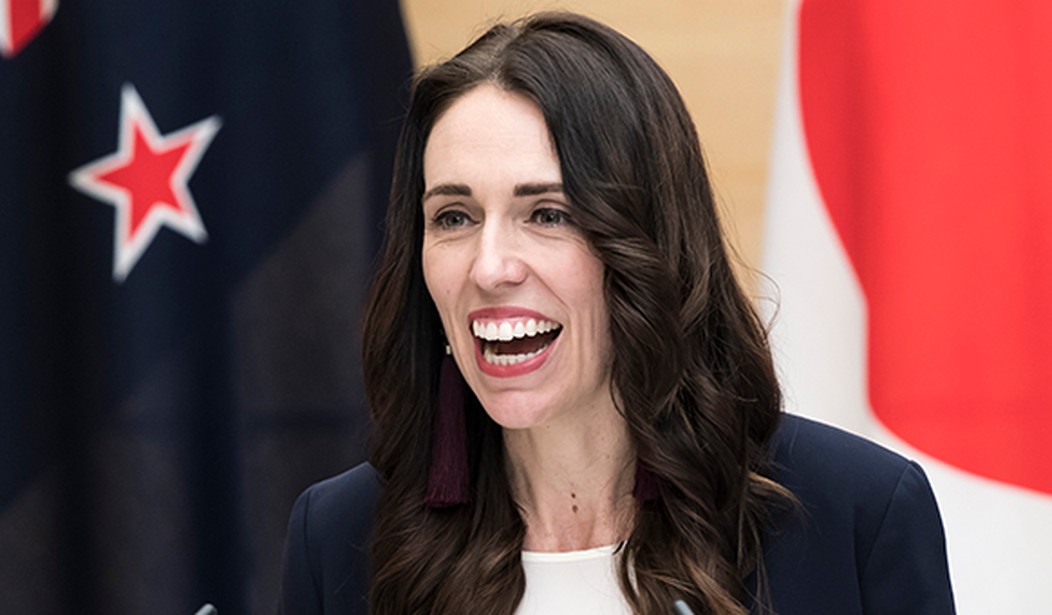To the world at large, Jacinda Ardern, New Zealand’s 42-year-old liberal prime minister, is a heroine for her fanatically strict policies to try and stop the COVID-19 pandemic.
“Fortress New Zealand ” was the nickname given to the draconian policies that Ardern instituted during the pandemic. And while much of the world cheered her commitment to authoritarianism, the people of New Zealand had different thoughts about being locked down.
“I’m leaving, because with such a privileged role comes responsibility. The responsibility to know when you are the right person to lead and also when you are not,” The Guardian quoted Ardern as saying. “I know what this job takes. And I know that I no longer have enough in the tank to do it justice. It’s that simple.”
Well, it’s not really “that simple”. While the rest of the world paid her homage, Ardern’s countrymen rebelled until she was forced to lift most restrictions long after the rest of the developed world had opened up.
The result was runaway inflation and an economy in the tank — despite her grandiose promises. The economy is what eventually sank her, not her authoritarian response to COVID.
On the international stage, Ms Ardern’s tough COVID policies played as the strong leader keeping the virus out of her country and her people safe — and for a long time that was true.
But at home, that policy created risks for the leader — some political, others physical.
Fortress New Zealand became a “Trojan horse” for the country’s far right and tough vaccine mandates enabled that group to pick up more members from mainstream parts of society.
While the most extreme members of the so-called “freedom movement” sent Ms Ardern death threats, teachers and nurses protested beside them.
The political risk came when the walls of fortress New Zealand eventually came down, and Ms Ardern was faced with not only a series of unmet election promises, but rocketing inflation.
New Zealand’s isolation contributed to the absence of COVID-19 in the country more than any government policy until 2021. Then, in August, Ardern locked down the country for three days after one case was discovered.
New Zealand-born journalist Dan Wooton says “good riddance.”
This was one of the MailOnline columns I’ve had the most feedback on.
The way Ardern terrorised her own population and locked out passport holders like me for over two years was unforgivable.
I will never forget the damage she’s caused. But Kiwis woke up!https://t.co/YYH9OB87PE— Dan Wootton (@danwootton) January 19, 2023
Ardern was also caught on a hot mic disparaging a rival lawmaker last month, using a “perjorative word” for a part of the male anatomy to describe a rival lawmaker, according to the Washington Post:
New Zealand is also grappling with many of the pressures seen elsewhere: inflation, rising interest rates and housing affordability issues. Localized problems, such as raids on jewelry stores and corner-store robberies — at least one of them deadly — have additionally led to perceptions among some voters that her administration is soft on crime.
Last month, Ardern suffered a rare lapse in composure in Parliament and was caught on a hot mic referring to a rival lawmaker using a pejorative word. (An official transcript of the remarks, in which Ardern compared him to a part of the male anatomy, was signed by Ardern and the lawmaker in question and later auctioned for charity.)
If anything, Ardern’s draconian COVID policies proved that there is no “fortress” when discussing a pandemic. In hindsight, it seemed a pathetic attempt to stick a finger in the dyke to hold back the sea. And despite the policy’s failure, her reputation as a far-left icon remains undamaged.










Join the conversation as a VIP Member